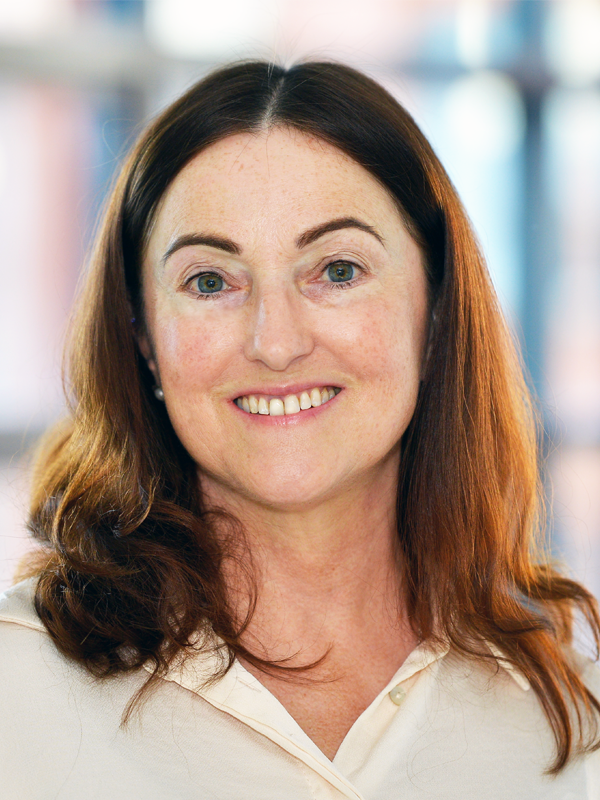Cancer Claims
The specialist solicitors at Manchester-based Potter Rees Dolan are here to help if you have suffered as a result of a delay or error in the diagnosis of cancer.
We understand the stress and confusion that you are likely to feel at such a time, and we know the impact a cancer diagnosis can have on your life. You may feel like you have nowhere to turn, but we are here to offer you expert legal advice and support that will make your life that little bit easier.
We will work tirelessly to get you the answers and the compensation you deserve, as we have seen first-hand what a difference it can make to your quality of life. Our team offers a highly personal service, and we strive to give our clients a voice when things have gone wrong, while also driving improvements in healthcare standards.
Potter Rees Dolan’s team of clinical negligence solicitors is recognised as one of the best in the country, and can help you recover the compensation you need. Our partners Helen Dolan, Lesley Herbertson and Gill Edwards, along with senior solicitor Helen Budge, all feature in the prestigious Legal 500 and Chambers guides, and have considerable experience in dealing with cases of this kind.
If you believe you are entitled to compensation due to clinical negligence relating to the diagnosis of your cancer, call us on 0800 027 2557. If you’d prefer to send us a message, please use our online enquiry form.
About cancer delay and misdiagnosis
Thanks to modern advances in medical treatment, many cancer sufferers can be treated effectively with the right care. The earlier a diagnosis is made, the greater the chance of recovery - which is why misdiagnosis or delayed diagnosis of cancer is a serious and worrying prospect.
Even in cases where the patient has sought medical attention promptly, errors made by medical professionals can result in the diagnosis being delayed or missed altogether, which can put the patient’s health at serious risk.
What causes cancer diagnoses to be delayed?
Common mistakes that can result in delayed diagnosis include:
- Failure to examine a patient
- Test results that are filed away or lost
- Misinterpreted test results
- Failure to refer the patient to a specialist
- Failure to investigate symptoms further
- Failure to recognise signs and symptoms
- Failure to monitor those with a family history of cancer
What are the consequences of a delayed or incorrect cancer diagnosis?
Those who suffer delayed or misdiagnosed cancer can experience severe psychological suffering, as well as having to undergo additional treatment or surgery that could otherwise have been avoided.
Potential consequences include:
- a lower chance of the cancer being treated successfully, putting the patient’s life at risk
- an increased risk of needing to undergo more aggressive, invasive or stressful treatment methods, such as chemotherapy
- an increased risk of needing surgery or more extensive surgery
- an increased risk of suffering otherwise avoidable complications
- a higher overall cost of treatment
How can I pursue a cancer-related clinical negligence claim?
At Potter Rees Dolan, our clinical negligence team has become known as one of the very best in the UK, with extensive medical knowledge and more than 60 years of combined experience in serious injury law. The team has an unwavering dedication to helping families recover the right amount of compensation.
About Helen Dolan, head of the department, Chambers 2020 says: “Helen regularly handles complex claims, such as those related to psychiatric care. She has further expertise in spinal injury, surgical negligence and cerebral palsy claims, as well as breach of duty cases. One source states: 'Her attention to detail and knowledge of the case inside and out was exemplary.”
The same publication said Lesley Herbertson “is very good on the complex details of the case and is able to translate this to clients”.
Meanwhile, Gill Edwards is described as being “incredibly good with clients - they really warm to her - and very good on the medical details”. Client feedback quoted by Chambers stated: “The way that she helped me is amazing. She is fantastic."
The Legal 500 describes both Helen Budge and Hannah Bottomley as "approachable, supportive, thorough and extremely knowledgeable. They are also happy to listen to our suggestions and together we have an excellent plan in place."
Additionally, Chambers 2019 calls our clinical negligence team as a whole a “well-regarded team with an impressive caseload of complex clinical negligence work” and says that sources highlight the “really nice, bespoke, high-quality" service we offer.
Our clients regularly tell us that it is the empathy and care with which we act that sets us apart. Because we specialise in serious and catastrophic injuries, we know how difficult it can be to live with severe disability, so we work to make the claims process as stress-free as we can for you and your family.
Funding
Most medical negligence cases are funded on the basis of a “no win, no fee” arrangement, otherwise known as a Conditional Fee Agreement. This means we can investigate your potential claim and you will not be asked to pay any costs if your case is not successful.
The detail of how a Conditional Fee Agreement works will be carefully explained to you at our first meeting.
Testimonials
“Dealing with solicitors and legal matters can be very daunting. You made the experience very easy and in a friendly manner. Thank you very much.”
Mr and Mrs L, Glossop
“Friendly, understanding, clear and accommodating. Took the time to explain rationale for decisions and legal processes. Exactly the right balance of direction and recommendation. Very personable service, can't fault the service. From receptionists to solicitors to specialist help.”
Mrs B, Turton
Read more testimonials from our clients here.
What happens next?
Initially, we will discuss your circumstances and help you to understand whether or not your case can be pursued. Once this has been established, we will gather all the necessary evidence needed to make a strong case and give you the best chance of recovering compensation.
We will obtain all relevant medical records and go through these with you, then instruct independent experts in the appropriate areas of specialism to advise on whether or not the affected individual has received substandard treatment. Once we have supportive expert evidence, court proceedings will begin and the claim will be processed as quickly as possible.
Speak to us
To speak to a solicitor about your circumstances, contact us on 0800 027 557. We can also get back to you at a suitable time if you complete the online contact form on the side of this page, or by visiting our contact page. If you have someone specific in mind that you would like to speak to, visit their profile on our people page.
FAQs
How is cancer diagnosed?
If a potential cancer symptom has been noticed, a patient’s first port of call will usually be their GP. A doctor will typically ask about personal and family medical history, as well as perform a physical examination.
High or low levels of certain substances in the body can be a telltale sign of cancer, which is why blood, urine and other body fluids are tested to help doctors to make a diagnosis. While abnormal test results are not always a sign of cancer, these results can be incredibly useful for medical professionals to gain a clear picture of the patient’s overall health.
Other procedures carried out to detect cancer can include:
- CT scans
- Ultrasounds
- Nuclear scans
- MRI scans
- PET scans
- X-rays
In most cases, doctors will also need to perform a biopsy to make a diagnosis of cancer. This involves the removal of a sample of tissue, allowing a pathologist to look at the tissue under a microscope for evidence of cancer.
Useful Information
Radio Necrosis
This is a major complication following the use of radiotherapy on cancerous tumours when normal tissue is destructed. Necrosis means the death of cells in bones, organs, and soft tissues.
Radiotherapy is common method used to treat cancer, but it can also affect the rest of the body as the tissue in the surrounding area is also exposed.
Tissue damage begins once the patient is exposed to the radiation beam. The damage starts to interfere with the normal processes of supplying blood to the irritated areas, causing the tissue to change.
If a surgeon attempts to repair the damaged tissues, he or she may confront numerous complications. When attempting a skin graft, the surgeon has to connect to tissues that are ischemic (where there is a restricted blood supply) which means the tissue may heal with difficulty or not at all.
Radio necrosis develops in four stages:
- Acute clinical period (first six months) : No clinical signs may arise during the first few months unless tissue therapy has exceeded its radiation tolerance limits.
- Sub acute clinical period (second six months) : The recovery from acute radiation damage ends and permanent damage becomes evident.
- Chronic clinical period (second to fifth year) : Further damage occurs and the most significant problems arise due to chronic deterioration of the microvasculature and tissue damage.
- Late clinical period (after five years) : Physicians should be alert to signs of new cancers at this stage as soft tissue radio necrosis develops quite slowly. Very few recognisable skin changes arise during first six to 12 months after radiation damage.
Squamous Cell Carcinoma
This is an uncontrolled growth of abnormal cells arising in the squamous cells - the thin, flat cells that make up the outer layer of the skin (the epidermis).
Squamous Cell Carcinomas (SCCs) often look like scaly red patches, open sores, or elevated growths with a central depression.
This is the one of the major forms of skin cancer as they are usually found in areas frequently exposed to the sun due to increasing UV exposure on the skin over time.
For this reason, they more commonly found in people with an outdoor profession/lifestyle, the elderly or those with a fair complexion susceptible to burning.
However, SCCs can also occur in other tissues such as; lips, mouth, oesophagus, urinary bladder, prostate, lung, vagina, and cervix.
The symptoms of an SCC can vary but it begins as a small nodule and, as it enlarges, the centre becomes necrotic and sloughs and the nodule turns into an ulcer. This usually presents itself as an ulcerated lesion with hard, raised edges.
The tumour itself may be in the form of hard plaque often with tiny blood vessels. It can lie below the level of the skin and eventually invades the underlying tissue.
Squamous Cell Carcinomas are usually investigated through a biopsy and classified under a microscope to determine the subtype.
They are generally treated by surgical excision although there is the option to use topical chemotherapy and radiotherapy. Radiotherapy is usually used as treatment in patients for whom surgery is not feasible.
The common prognosis of Squamous Cell Carcinoma is positive with less than 4% of cases spreading to other parts of the body. Some particular forms of SCCs have a higher, though still positive long-term outcome.















